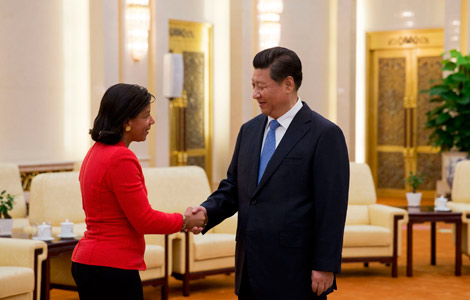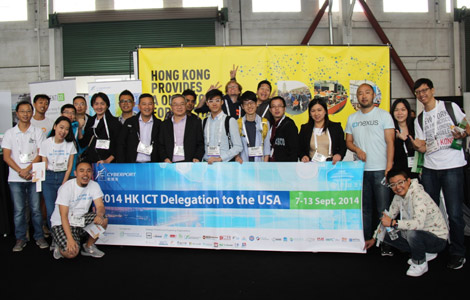Chinese investors, immigrants await immigration changes in Canada
Updated: 2014-08-29 07:25
By PAUL WELITZKIN in New York(China Daily Canada)
|
||||||||
The Canadian government is scheduled to implement new programs for immigrant investors and the entry of skilled workers into the country next year that are expected to require a higher level of investment funds and level of English proficiency.
Observers say Chinese investors will not only have to provide more money, but invest it directly into startups to gain resident status, while Chinese workers will also have to demonstrate skills in a job that Canada can’t fill with a native resident and display a certain level of English proficiency.
Earlier this year the federal government announced plans to phase out the existing immigrant investor program. Under that program investors seeking to emigrate to Canada were required to make a five-year, interest-free loan to the government of either C$400,000 (US$365,347) or $800,000 and have a net worth of $1.6 million.
Eliminating the current immigrant investor program meant that a backlog of approximately 65,000 pending applications were shut out of the program. About three-quarters of those applicants were Chinese, prompting some to take legal action.
Robert Kurland, a Vancouver attorney who consults with government and business on immigration issues and has testified before provincial and federal committees, said in addition to the enormous backlog, another issue was what happened to the money (either $400,000 or $800,000) provided by the applicants to the government.
“Those funds just sat in a special account and didn’t even earn interest,” said Kurland. “It was never invested so there was no economic benefit to the immigrant or the Canadian economy. The government just returned the money five years later.”
Sometime next year the federal government is expected to reveal details of the replacement program called the Immigrant Investor Venture Capital Fund project. Kurland said it will be based on a similar program in Australia.
“Basically an investor will be required to invest and my guess is the amount will be at least $1.6 million into start-up companies from a list compiled by the government. The investor will chose which firm or firms they want to invest in. Here is the important part – the investor will bear all of the risk so if the company doesn’t make it for whatever reason, the investor could lose the entire amount,” he said.
Kurland does have some concerns with this approach. “What happens if the company folds or is sold? Also where will the monitoring and accountability of the companies on the list come from?”
He believes that British Columbia may offer a better alternative in the BC Immigrant Investment Fund Ltd. (BCIIF). Right now the province splits all immigrant investor funds with the federal government on a 50-50 basis. The province established the BCIIF, which has a board of directors to oversee the investment of the funds.
These are professionals who know what to look for and the risks involved when it comes to startup investing, said Kurland. Plus the province through this board can ensure that investments go into areas they have prioritized like green energy and health care. I think it would be better for all involved to follow the BC model and also have it set up so the investment is matched by private capital from the start-up company.”
Kurland said that in addition to the investment funds, applicants will be expected to demonstrate a certain skill level in the English language. Canada’s Citizenship and Immigration Minister Chris Alexander’s office left no doubt that English proficiency will be included in the final requirements.
“A recent survey concluded that immigrant investors had the lowest official language ability of any immigrant category, including refugees. Official language ability is a key factor in the successful integration of immigrants,” he said a statement submitted to China Daily.
The Express Entry program for immigrant workers will be designed to reflect the current state of the Canadian workforce, according to Jonathan Dai, president and CEO of Howlund International Corp. in Edmonton. Dai is a native of Shanghai who has been involved in foreign worker recruitment in Canada for over 20 years.
“Workers from China or other countries will submit their resumes to the Canadian government which will then place their names and background into a pool that Canadian employers can utilize when they are unable to find Canadians or permanent residents to fill job vacancies,” Dai said.
One of the benefits of this program according to Dai is that employment will be assured for an immigrant. “I think this will give many immigrants some peace of mind knowing that they already will have a job when they arrive here,” he said. “Another plus is that once a skilled worker is matched with an employer, the process should only take months to complete. Depending on the case, it can now take years to complete the process.”
Dai said most of the openings for immigrant workers under Express Entry will involve the skilled trades – electricians, carpenters, welders and heavy-duty mechanics. “This will also be another avenue for international students from China who graduate from a college or university in Canada to seek employment and stay in the country if they want to,” he added.
Like the immigrant venture capital project, foreign workers will be expected to demonstrate proficiency in English for Express Entry.
“The worker will need to have pretty good English or French skills,” said Dai. “That’s why they will require you to submit a resume. The Chinese will need to have English skills as good as others like the workers from India if they want to be employed in Canada.”
The new program for immigrant investors and skilled workers will represent an attempt by the Canadian government to address some festering issues in the nation’s immigration system.
“The government is building a fast and flexible immigration system that contributes to the country’s economic success. We believe those who want to come to Canada as investors should live here, pay taxes here and invest their money directly in the Canadian economy. Canada has a proud tradition of welcoming immigrants from all over the world, including China. In January 2015, Canada will launch an active employment recruitment model known as Express Entry,” according to a statement from Immigration Minister Alexander’s office.
paulwelitzkin@chinadailyusa.com
Most Viewed
Editor's Picks

|

|

|

|

|

|
Today's Top News
Apple unveils new phones, watch
More Chinese students going to Canada for high school
China, US rein in disputes
Alibaba kicks off IPO global roadshow in NY
US tech firm joins Chinese plant to help curb pollution
China's poverty cut off too low
Holiday gifts breach anti-graft rule
Tsinghua, Berkeley prepare joint institute
US Weekly

|

|
















